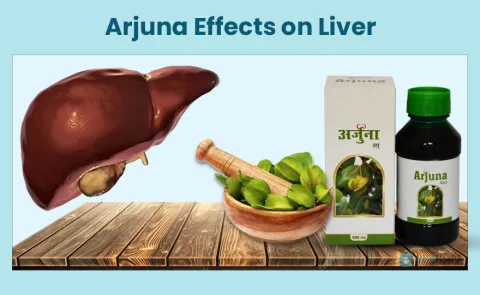How to Cure Tonsillitis in 4 Hours Permanently at Home?

Quick Summary
Tonsillitis is a painful and uncomfortable condition that can be treated at home with home remedies.
- Warm liquids can help soothe a sore throat.
- Salt water gargles can help kill bacteria and reduce inflammation.
- Over-the-counter pain relievers can help relieve pain and discomfort.
Preventing future outbreaks of tonsillitis can be done by avoiding contact with people who are sick, getting plenty of rest, and eating a healthy diet.
Table of Contents
- What is Tonsillitis?
- Importance of Treating Tonsillitis
- How to cure Tonsillitis in 4 hours at home?
- Curing Tonsillitis with Diet
- Lifestyle Changes for Tonsillitis
- Medications for Tonsillitis
- Key Points for Effective Treatment
- Complications of Delaying Treatment
- Takeaway
- Frequently Asked Questions
- References
Tonsillitis can be painful and uncomfortable, causing sore throat and difficulty during swallowing. But before you run to the doctor, several home remedies can answer your question of "How to Cure Tonsillitis in 4 Hours" and help alleviate your symptoms, making you feel more comfortable during your recovery.
This blog will dive into the top home remedies for tonsillitis, from warm liquids and salt water gargles to over-the-counter pain relievers. We'll also provide tips for preventing future outbreaks so you can return to your normal routine as soon as possible. So, whether you're struggling with tonsillitis or want to be prepared, read on and find out how you can cure tonsillitis at home!
Download our App today to plan your surgery seamlessly and stress-free!
What is Tonsillitis?
Tonsillitis is an inflammation of the tonsils, which are two small clusters of lymphatic tissue located at the back of the throat. It is usually caused by a viral or bacterial infection and can cause symptoms and signs such as sore throat, swallowing pain, fever, swollen tonsils, and enlarged neck glands.
Tonsillitis can occur at any age but is most common in children and young adults. In many cases, tonsillitis can be treated effectively with home remedies and over-the-counter medications. However, in severe cases, it may require treatment with antibiotics or even surgical removal.


Importance of Treating Tonsillitis
Understanding the importance of treating tonsillitis can help individuals make informed decisions about their health and ensure prompt and effective care when needed. Some key points include:
- Relieve symptoms: Taking steps to alleviate symptoms such as sore throat, fever, and headache can help improve an individual's comfort and quality of life.
- Prevent the spread of infection: Precautions such as frequent hand-washing and avoiding close contact with others can help reduce the spread of the infection to others.
- Avoid medical intervention: By managing symptoms at home, individuals may be able to avoid the need for medical intervention, such as antibiotics or other prescription medications.
- Save time and money: Treating tonsillitis at home can save time and money that would otherwise be required for doctor visits or hospitalization.
How to cure Tonsillitis in 4 hours at home?
Tonsillitis can cause discomfort, but several simple home remedies can help relieve symptoms and promote healing. The following are some steps you can take on how to cure tonsils permanently at home:
- Steam: Inhaling steam from a hot shower or a bowl of hot water can help relieve throat congestion and soothe a sore throat.
- Warm compress: Placing a compress on the neck reduces swelling and relieves pain.
- Essential oils: Tea tree oil or eucalyptus oil can be added to a steam bath or used in a diffuser to help relieve throat congestion.
- Gargle with salt water: This can help the patient reduce swelling and loosen mucus. To make a saltwater rinse, mix 1/4 teaspoon of salt in 1 cup of lukewarm water.
- Honey: Warm tea with honey can help to soothe the throat and reduce pain and swelling associated with tonsillitis.
- Chamomile Tea: This is a popular home remedy for tonsillitis because it has anti-inflammatory and antiseptic properties
- Apple cider vinegar: Mixing a tablespoon of apple cider vinegar with a glass of warm water and drinking reduces inflammation and fights infection.

Curing Tonsillitis with Diet
When you have tonsillitis, it can be challenging to eat and drink due to the pain and swelling in your throat. Here are some types of food that are easy to swallow and can help you know how to cure tonsils fast:
- Soft foods, such as cooked vegetables, mashed potatoes, and rice, are easier to swallow. They can be less irritating to the throat and help cure tonsillitis in 4 hours.
- Soup, including warm, broth-based soups, can help soothe a sore throat and provide some hydration.
- Smoothies, made with soft fruits, yoghurt, and milk, are excellent sources of nutrients and are easier to swallow than solid foods.
- Popsicles or other frozen foods treat a sore throat. The cool temperature of the popsicles can help numb the throat, relieving the pain.
- Warm liquids, such as tea with honey, can reduce pain and discomfort associated with tonsillitis.
- Fruits are a natural way to help cure tonsillitis due to their high nutrient content and immune-boosting properties. Vitamin C-rich fruits, such as oranges, lemons, and grapefruits, are excellent for reducing inflammation.
If you want to know how to cure tonsils fast, you should know that eating a well-balanced diet helps support your immune system and promotes healing. However, if you cannot eat solid foods due to the pain and swelling in your throat, you may need to rely on liquids. If you are losing appetite and cannot drink water to keep yourself hydrated, it's important to see a doctor.
Lifestyle Changes for Tonsillitis
Making certain lifestyle changes can help to manage the symptoms of tonsillitis and promote healing. Here are some recommendations:
- Stay hydrated: Drink plenty of fluids, especially water, to help keep your throat hydrated and flush out any bacteria or viruses.
- Get enough sleep: Adequate sleep is essential for a healthy immune system, so aim to get at least 7-8 hours of sleep each night.
- Reduce stress: Taking stress can weaken your immune system, so try to find ways to manage it, such as yoga, meditation, or exercise.
- Avoid irritants: Exposure to cigarette smoke, air pollution, and other irritants can weaken your immune system and increase your risk of infection.
- Eat a healthy diet: Incorporating a balanced diet rich in essential vitamins and minerals can enhance your immune system and reduce the risk of infections. To achieve this, include a variety of fresh fruits and vegetables, whole grains, lean proteins, and healthy fats in your meals.
- Avoid smoking and alcohol: Using tobacco products and excessive alcohol intake can impair your immune system and raise the likelihood of contracting infections.
The following lifestyle adjustments can prevent you from any future outbreaks and aid in preventing tonsillitis.
Medications for Tonsillitis
Tonsillitis is usually treated with antibiotics, lozenges and syrups to clear the infection. Painkillers are given in cases when there is excessive discomfort and pain. Some important medications include:
Antibiotics
If a bacterial infection causes tonsillitis, the doctor may prescribe antibiotics to help clear the infection.
- Common antibiotics used include penicillin, amoxicillin, and erythromycin.
- These antibiotics work by killing the bacteria that are causing the infection.
- It's important to take antibiotics as directed by your doctor, even if you start to feel better before the medication is finished. This helps to ensure that the infection is completely cleared.
OTC Medications
- Painkillers
- Various OTC medications can help alleviate tonsillitis symptoms, such as pain and fever.
- These include pain relievers such as ibuprofen, acetaminophen, and decongestants.
- Lozenges
- They come in a variety of flavours and can be found at most drug stores.
- Lozenges work by numbing the throat and providing a soothing effect, which can help relieve soreness and pain caused by tonsillitis.
- Some lozenges also contain menthol, which can help clear congested airways and provide relief from coughing.
- Soothing throat lozenges, such as cough drops or hard candies, can help relieve a sore throat.
- Syrups are often used to treat these symptoms because they can relieve pain and irritation. There are different types of syrups that can be used to treat tonsillitis, each with a different active ingredient. For example:
- Antibiotic syrups may be prescribed if a bacterial infection causes tonsillitis.
- Anesthetic syrups contain numbing agents that can help relieve the pain and discomfort associated with tonsillitis.
- Demulcent syrups have ingredients that can soothe and lubricate the throat, reducing irritation and discomfort.
- Anti-inflammatory syrups contain ingredients that can reduce swelling and inflammation in the throat, providing relief.

Key Points for Effective Treatment
Tonsillitis treatment typically involves relieving symptoms and treating the underlying cause. Key considerations on how to treat tonsillitis include:
- Self-diagnosis: It is not advisable to self-diagnose the condition, and it is better to seek professional medical advice.
- Stopping antibiotics early: If prescribed antibiotics, don't stop taking them before the recommended time, even if you start to feel better.
- Refrain from sharing personal items: Don't share personal items, such as towels or utensils, with other people to prevent infection from spreading.
- Removing tonsil stones: Removing them on your own is not recommended, as this can cause injury to the tonsils or other structures in the mouth and throat.
Complications of Delaying Treatment
While tonsillitis is often a mild illness that can be treated at home, delaying treatment can lead to serious complications, including:
- Recurrent infections: If tonsillitis is not treated, it can reoccur, leading to repeated episodes of infection and discomfort.
- Chronic tonsillitis: In some cases, untreated tonsillitis can become chronic, leading to ongoing inflammation and discomfort.
- Abscess formation: A pocket of pus (abscess) can form, which can cause difficulty swallowing and breathing.
- Spread of infection: Tonsillitis can spread to other parts of the body, such as the ears or sinuses, if left untreated.
- Rheumatic fever: In rare cases, untreated tonsillitis can lead to rheumatic fever, which can cause heart damage and other health problems.
- Worsening of symptoms: Delaying treatment can result in the symptoms becoming more severe and longer-lasting.

Takeaway
It is important to maintain good hygiene to help prevent the spread of tonsillitis, including washing your hands frequently with soap and water. Covering your mouth and nose while coughing and sneezing would be best.
If you are experiencing persistent or severe symptoms of tonsillitis, it may be necessary to seek medical treatment. In some cases, a tonsillectomy, which is surgically performed to remove the tonsils, may be recommended for individuals with recurrent or chronic tonsillitis that does not respond to other treatments.
You can contact healthcare professionals of HexaHealth, which has top doctors, top surgeons and the best hospitals empanelled in their network that provide complete care services and hassle-free surgery experience at the right hospital and at the right price.
Download our App today to plan your surgery seamlessly and stress-free!
Frequently Asked Questions
How to cure tonsillitis in 4 hours?
To know how to cure tonsillitis in 4 hours, you should see a doctor as soon as you start experiencing symptoms. Your doctor may prescribe antibiotics to help treat the infection and relieve symptoms. In some cases, tonsillectomy (surgical removal of the tonsils) may be recommended to prevent recurrent tonsillitis.
Is tonsillitis a serious condition?
Tonsillitis can be serious, especially in people with compromised immune systems or certain underlying health conditions.If left untreated, tonsillitis can lead to complications such as abscesses, infections in other parts of the body, and difficulty breathing. In rare cases, tonsillitis can be life-threatening.
What is the best treatment to cure tonsils fast?
How to get rid of tonsillitis?
What are the ways to get rid of tonsillitis?
The specific treatment recommended will depend on the cause of tonsillitis and the severity of the symptoms. Here are some treatment options that may be recommended by a healthcare provider:
- Antibiotics
- Pain relievers
- Throat lozenges
- Rest and fluids
- Tonsillectomy
How long does tonsillitis last for?
The duration of tonsillitis (inflammation of the tonsils) can vary depending on the cause of the condition and the treatment received. Here are some general estimates of how long tonsillitis may last:
- Acute tonsillitis: This type of tonsillitis is typically caused by a viral infection and lasts for about 5 to 7 days. Symptoms may include sore throat, fever, headache, and swollen tonsils.
- Chronic tonsillitis: This is a recurrent or persistent form of tonsillitis that can last for several weeks or longer. A bacterial or viral infection may cause it, or it may be due to structural abnormalities of the tonsils. Symptoms may include sore throat, fever, and swollen tonsils.
Will tonsillitis go away on its own?
In some cases, tonsillitis (inflammation of the tonsils) may resolve on its own without treatment. However, it's important to consult a healthcare provider for proper diagnosis and treatment of tonsillitis, as it can be caused by a variety of factors and may have serious complications if left untreated.
How can I get rid of tonsillitis naturally?
There are several things you can do at home to help alleviate the symptoms of tonsillitis (inflammation of the tonsils) and speed up the recovery process:
- Get plenty of rest
- Drink fluids
- Use over-the-counter pain relievers
- Suck on throat lozenges
- Gargle with warm salt water
How to cure tonsils permanently?
If tonsillitis (inflammation of the tonsils) is persistent or recurrent, or if the tonsils are enlarged and causing difficulty swallowing or breathing, a healthcare provider may recommend a tonsillectomy (surgical removal of the tonsils).
What happens to tonsillitis if left untreated?
If tonsillitis (inflammation of the tonsils) is left untreated, it can lead to serious complications. Here are some possible outcomes if tonsillitis is not treated:
- Spread of infection: This can lead to complications such as abscesses, pneumonia, or rheumatic fever.
- Recurrent or persistent tonsillitis: Tonsillitis that is not treated may become recurrent or persistent, leading to ongoing discomfort and disruption of daily activities.
- Enlarged tonsils: Enlarged tonsils (also known as tonsillar hypertrophy) can cause difficulty swallowing and breathing, and may lead to other problems such as sleep apnea.
- Sepsis: In rare cases, tonsillitis can lead to sepsis, a potentially life-threatening condition caused by the body's response to an infection.
What causes tonsillitis?
Tonsillitis is usually caused by a viral or bacterial infection, although it can also be caused by other factors such as allergies or irritation from environmental pollutants.
- The most common causes of tonsillitis are viral infections such as the common cold or the flu.
- Bacterial infections, such as strep throat, can also cause tonsillitis.
- Other potential causes of tonsillitis include allergies, exposure to irritants such as tobacco smoke or air pollution, and structural abnormalities of the tonsils.
What foods soothe tonsillitis?
Certain foods and beverages may help to alleviate the symptoms of tonsillitis (inflammation of the tonsils) and provide comfort while you recover. Here are some food and beverage options that may be helpful:
- Soft foods: Soft foods such as soups, smoothies, and mashed potatoes can be easier to swallow and may be less irritating to the throat.
- Frozen treats: Popsicles, ice cream, and other frozen treats can help to numb the throat and provide temporary relief from pain.
- Hot tea with honey: Honey has antibacterial properties and can help to soothe a sore throat. Adding honey to hot tea can provide additional comfort.
- Ginger and turmeric: These spices have anti-inflammatory properties and may help to reduce swelling and alleviate throat pain.
How to cure tonsils fast?
Tonsillitis is typically caused by a viral or bacterial infection and can accompany symptoms such as sore throat, fever, and difficulty swallowing. While there is no surefire way to cure tonsillitis quickly, there are some steps you can take to know how to cure tonsils fast:
- Get plenty of rest: Resting can help your body fight infection and speed up healing.
- Stay hydrated: Drinking plenty of fluids, such as water and tea, can help to soothe the throat and keep you hydrated.
- Use over-the-counter pain relief: Over-the-counter pain relievers, such as ibuprofen or acetaminophen, can help to relieve pain and reduce fever.
- Gargle with salt water: Gargling with warm salt water can help to soothe the throat and reduce inflammation.
- Avoid irritants: Avoid substances that can irritate the throat, such as alcohol, tobacco smoke, and spicy foods.
- Use a humidifier: A humidifier can help to add moisture to the air and reduce throat irritation.
How to treat tonsillitis infection?
To know how to treat tonsillitis infection, you can follow the given options:
- Warm liquids: Drinking warm liquids, such as tea or broth, can help to soothe the throat and reduce pain.
- Suck on lozenges: Sucking on lozenges can help to stimulate saliva production, which can soothe the throat and reduce discomfort.
- Use a cool mist humidifier: A cool mist humidifier can help to add moisture to the air, reducing throat dryness and irritation.
- Eat soft foods: Eating soft foods, such as scrambled eggs, yoghurt, or mashed potatoes, can help to reduce the discomfort associated with swallowing.
- Avoid dairy products: Dairy products, such as milk, cheese, and ice cream, can increase mucus production and exacerbate symptoms of tonsillitis.
- Try over-the-counter throat sprays: Over-the-counter sprays can help numb the throat and provide temporary relief from pain and discomfort.
- Use a warm compress: Applying a warm compress to the neck and throat can help to reduce swelling and provide relief from pain.
Is there any tonsil pain relief medicine?
Yes, there are several types of tonsil pain relief medication that can be used. Some of the most common include:
- Over-the-counter pain relievers, such as ibuprofen (Advil) and acetaminophen (Tylenol), can help to relieve pain and reduce fever.
- Analgesic sprays or lozenges can help to numb the throat and provide temporary relief from pain and discomfort.
- Prescription pain relievers: If over-the-counter pain relievers are not effective, a healthcare professional may prescribe a stronger pain reliever, such as codeine or hydrocodone.
How to get rid of tonsil pain?
How to cure tonsillitis in 4 hours for adults?
How to prevent tonsillitis?
Here are some steps you can take to help prevent tonsillitis:
- Practice good hygiene: Regular hand washing can help to reduce the risk of exposure to viruses and bacteria that can cause tonsillitis.
- Avoid close contact with infected individuals: If someone you know has tonsillitis, try to avoid close contact with them until they have recovered.
- Maintain a healthy immune system: Eating a well-balanced diet, getting regular exercise, and getting enough sleep can help to boost your immune system and reduce your risk of developing tonsillitis.
- Avoid exposure to cigarette smoke: Exposure to cigarette smoke can weaken the immune system and increase the risk of tonsillitis.
- Get the flu vaccine: Getting the flu vaccine can help to reduce the risk of developing tonsillitis and other infections.
- Get a tonsillectomy (surgical removal of the tonsils) if you have frequent tonsillitis: If you have frequent tonsillitis, your healthcare professional may recommend a tonsillectomy. This surgical procedure can help to reduce the frequency of tonsillitis episodes.
Last Updated on: 1 September 2023
Reviewer

Dr. Aman Priya Khanna
MBBS, DNB General Surgery, FMAS, FIAGES, FALS Bariatric, MNAMS General Surgery
13 Years Experience
Dr Aman Priya Khanna is a highly experienced and National Board–Certified Laparoscopic, GI, and Bariatric Surgeon with over 13 years of clinical expertise.
He is widely regarded as one of the best bariatric surgeons in Ahmedabad, ...View More
Author

An enthusiastic writer with an eye for details and medical correctness. An avid reviewer and publisher. She emphasises authentic information and creates value for the readers. Earlier, she was involved in making ...View More
Expert Doctors (10)
NABH Accredited Hospitals (6)
Latest Health Articles
Related Treatments























 Open In App
Open In App